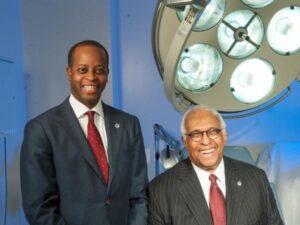Since COVID-19 made its way to the United States, we have seen a stream of worrying news of the pandemic’s impact on cancer care in the U.S., including 9.4 million missed screenings for just about all forms of cancer. While screening rates rebounded in the fall of 2020, there’s a growing concern from oncologists that screenings haven’t returned to pre-pandemic levels for everyone.
FDA is preparing to review an estimated 25 applications for cancer drugs that are being developed based largely—and in many cases entirely—on data from mainland China.
The White House has announced an expansion of the Cancer Moonshot’s mission beyond its initial focus on accelerating research and data sharing in oncology—with promises of renewed funding for an array of ambitious presidential initiatives.
On behalf of the millions of Americans with cancer, whose very lives depend on our nation’s investment in oncology research, we ask that you join us now in urging congressional lawmakers to do the right thing: pass robust funding for the National Institutes of Health and the National Cancer Institute.
The Cancer History Project Guest Editor Robert Winn focused on the legacy of LaSalle Leffall, a Howard University surgical oncologist. He and John H. Stewart, director of Louisiana State University-Louisiana Children’s Medical Center Health Cancer Center spoke with Wayne A.I. Frederick, president of Howard University.
As we begin our coverage of Black History Month, we invite you to revisit our coverage from last year.
The Omicron variant of SARS-CoV-2 is a powerful reminder that the COVID-19 pandemic, now entering its third year, will continue to have personal and public health impacts. This may be especially true for those individuals who unfortunately missed or delayed cancer screening or treatment as a result of the pandemic.
St. Jude Children’s Research Hospital is taking on a major global health challenge—the murky quagmire of drug shortages—by partnering with the World Health Organization to prove that practical solutions are within reach.
St. Jude Children’s Research Hospital’s new $200-million Global Platform for Access to Childhood Cancer Medicines—a partnership with the World Health Organization—can be traced back to a critique from a visiting reviewer.
Many global health professionals have dreamed about solving drug shortages, and St. Jude Children’s Research Hospital is taking the first steps toward eliminating the problem, said Carlos Rodriguez-Galindo, director of St. Jude Global.















